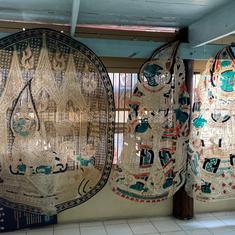Female genital cutting: SC refers plea seeking ban of practice to five-judge Constitution Bench
In an earlier hearing, the court had said the practice cannot be constitutional as it is ‘solely used to make a woman more appealing to her husband’.

The Supreme Court on Monday referred a petition seeking a complete ban on the practice of female genital cutting to a five-judge Constitution Bench.
A bench of Chief Justice Dipak Misra and Justices AM Khanwilkar and DY Chandrachud was hearing a petition that asked the court to declare the practice of female genital cutting illegal. The petition also wanted the court to issue orders to make the practice a cognisable, non-compoundable and non-bailable offence, according to ANI.
Members of the Dawoodi Bohra community had earlier moved the court saying the practice should be allowed as religious freedom is guaranteed under Article 25 of the Constitution.
The court on Monday referred it to a Constitution Bench after Attorney General KK Venugopal and senior advocate Mukul Rohtagi, who is appearing for the the Dawoodi Bohra community, requested it, Bar and Bench reported.
Female Genital Mutilation (FGM) Case: Supreme Court referred the matter to a five-judge Constitution bench.Petition filed had sought issuance of orders to impose a complete ban on practice of FGM throughout India& for making it cognizable,non-compoundable and non-bailable offence
— ANI (@ANI) September 24, 2018
In earlier hearings, Venugopal, appearing for the Centre, said that the government supported the plea against the practice. He had told the court that the practice “violates the preconditions of public order, morality and health imposed under Articles 25 and 26 and the right to bodily integrity”.
The top court has said that the practice of female genital cutting cannot be constitutional as it is “solely used to make a woman more appealing to her husband.”
The Dawoodi Bohra community in India is known to practice female genital cutting, which typically involves a cut or nick to the clitoral hood. Investigations have showed it is practised even among literate communities in Kerala. The practice, called khatna or khafz within the Dawoodi Bohra community, is defined by the United Nations as Type-I female genital cutting, which describes this as including either the cutting of the clitoral hood or the partial or total removal of the clitoris, and is usually done to girls aged between six and 12 years.
The practice is not yet illegal in India, but female genital cutting in any form has been outlawed in several countries around the world, including the United States.
The Dawoodi Bohra Women’s Association for Religious Freedom, which is petitioning in favour of the practice, called the decision an “encouraging development”, and said the Supreme court “upheld the voice of a large section of Dawoodi Bohra women in India”.
NGO WeSpeakOut said the order was disappointing. It said the decision would lead to more delay in getting a verdict.
“What is shocking is the clear volte face by Attorney General KK Venugopal, who on previous occasions had said in the courtroom that he supported the petitioner and that the act of female genital mutilation is clearly a crime under Indian laws,” said outfit founder Masooma Ranalvi. “The referral is an attempt to re-frame the issue from one of female genital mutilation being a violation of constitutional and human rights to that of a right to continue this discriminatory practice under the garb of religious freedom.”
The World Health Organisation has not found any health benefits to cutting girls’ genitalia and has said that it may instead cause several negative short-and-long-term consequences. WHO has said that the practice leads to infections, cysts, infertility and higher childbirth complications.









